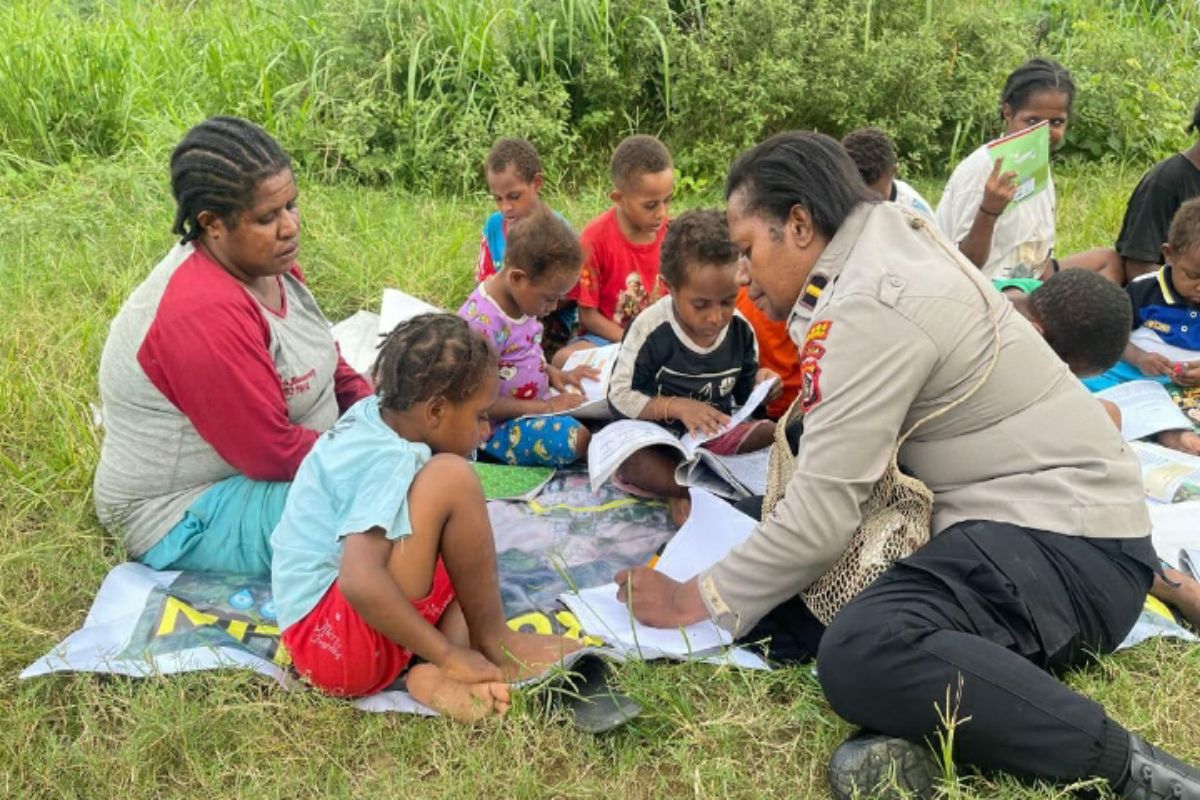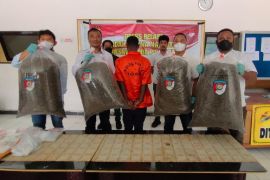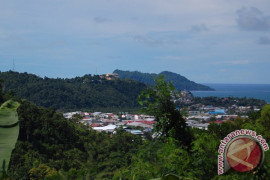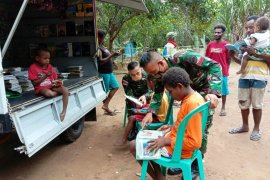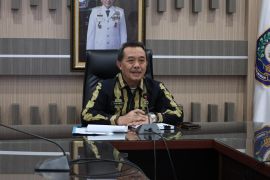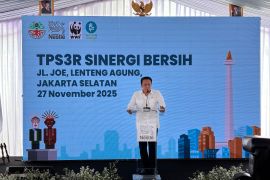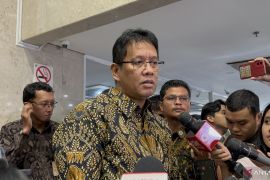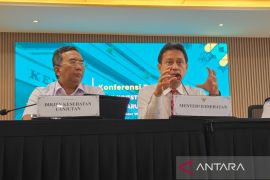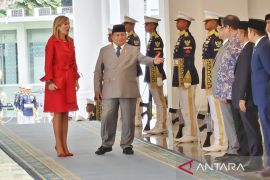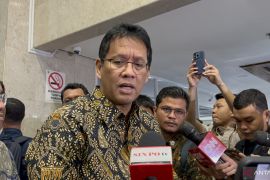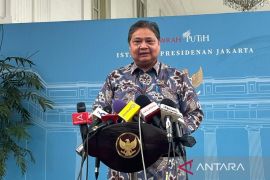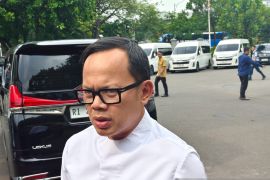Some Jayapura Police personnel were willing to increase the local residents’ literacy amid their busy schedules of maintaining security and social order. The program, which has been running for three years, is starting to show improvement.
Before running the program, the Jayapura Police prepared its personnel by involving them in a teaching program.
The police participated in training conducted by the Bunda PAUD (Early Childhood Education) program, which is implemented by the Ministry of Education and Culture. Through this training, the police gained a better understanding of effective teaching.
The police decided to participate in the education duty since they saw that several children had dropped out of school and were not fluent in reading and writing in the area. In addition, the same was noticed in several adults, thereby necessitating the implementation of the Gabus program.
In the future, all police stations in the Jayapura Police area are expected to implement a similar program to help the community around them.
"Through the Gabus program, the Jayapura Police are trying to help residents improve their literacy," said Jayapura Police Chief Adjunct Senior Commissioner Fredrickus W. A. Maclarimboen.
Activities involving personnel are carried out amid their daily duties, with some even doing it after office hours.
The personnel usually carry out the program between visits to the community, while the policewomen usually execute it after office hours, with a teaching duration of around one hour.
The Jayapura Police have 106 active personnel who are members of the program, and the number of participants is currently 127.
Students who are already fluent in reading and writing will be reported to the Ministry of Education and Culture to take part in the test program and receive a Literacy Certificate (Sukma). Some 12 participants have received Sukma, and more are expected to take the equivalency exam in the future.
The Jayapura Police expressed hope that agencies or parties involved in the education sector would be willing to help and work together to eradicate illiteracy among residents in the district and Papua as well.
Outdoor study
Agustina Felle, a teacher at Komba Elementary School in Sentani Subdistrict, said she was called to join forces with members of the Jayapura Police to teach children and adults who cannot read fluently or who are still illiterate.
As a teacher, she feels responsible for the children around her who cannot read and write fluently, which hinders their education and even causes them to drop out of school.
Hence, the Gabus program is expected to teach children and adults to become more fluent in reading, writing, and even arithmetic so they can pursue higher education in the future.
"They are the future of the nation, so all parties are expected to help educate children," Felle said.
Apart from teaching, she also provides one of the rooms in her house for teaching and learning activities.
Adjunct Commissioner Khatarina H.L. Aya, a member of the Jayapura Police, said she was glad to teach in the Gabus program.
Aya said that she sometimes carries out these activities in an open space for closer interactions by visiting residents and adjusting to their schedules.
This is different from teaching children and young people who have dropped out of school or who cannot read and write fluently, which she usually does in some residents’ yards.
“We are ready to teach them anywhere. The most important thing is their spirit to learn,” she remarked.
Learning with no shame
Ina Wenda, a Gabus program participant who has recently become literate, commended the dedication of the police, who are willing to take time out to teach those who cannot yet read and write.
Despite being a 50-year-old woman who sells staple goods at Sentani Market, she said she was not embarrassed to study alongside other students.
She was seen diligently writing word by word and listening to the lessons imparted by the policewoman using a small table.
"I want to be able to read and write fluently like everyone else," Wenda revealed.
Children participating in the program echoed the same aspiration, saying that the Gabus program helps them understand lessons at school.
After participating in the Gabus program, one student, along with several other participants, admitted to having developed greater fluency in reading and writing.
"Thank you to our police who have been teaching us to read and write fluently," stated Isak, one of the students.
The police's efforts through this program can change the future of the Gabus participants. By reading and writing fluently, the horizons of the children will be increasingly broadened.
Related news: Papua makes cross-sector push for equal education in 3T areas
Related news: VP expects continuity in programs on stunting, development in Papua
Translator: Evarukdijati, Resinta Sulistiyandari
Editor: Anton Santoso
Copyright © ANTARA 2024
